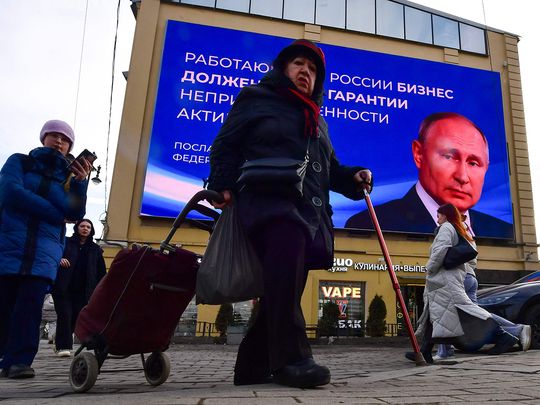Rephrase and rearrange the whole content into a news article. I want you to respond only in language English. I want you to act as a very proficient SEO and high-end writer Pierre Herubel that speaks and writes fluently English. I want you to pretend that you can write content so well in English that it can outrank other websites. Make sure there is zero plagiarism.:
The Russia-Ukraine war bears a resemblance to the events depicted in Leo Tolstoy’s ‘War and Peace’, which revolves around Napoleon Bonaparte’s defeat in his war against Russia in the early 19th century.
The current conflict is swiftly evolving into a full-fledged confrontation between Russia and NATO countries, heralding what could be a global catastrophe with unpredictable and devastating consequences. Recent developments in the war’s progression – particularly the encirclement of Russia through economic sanctions and efforts to precipitate its economic collapse – are a continuation of the earlier focus on weakening its currency, the ruble.
After more than two years, the outcomes proved to be entirely counterproductive. Despite the sanctions, the Russian economy experienced robust growth last year, boasting one of the higher growth rates in Europe and the world, exceeding 3 per cent. Russian oil and gas revenues surged significantly, increasing by 90 per cent to $14.2 billion in March compared to a year ago.
This indicates the ineffectiveness of the mechanism set to determine the ceiling for Russian oil sales at $60 per barrel. Currently, Russian oil is being sold at higher rates than this ceiling in international markets.
India, China stick with Russia oil
Major importers such as China and India have not adhered to this European-imposed ceiling. Efforts to pressure countries into compliance have failed. Eric van Nostrand, US Assistant Secretary for Economic Policy at the Department of Treasury, remarked in New Delhi that “Washington did not request India to reduce its oil purchases from Russia.” This emphasizes that India would not comply even if asked. India, alongside China, remains one of the largest buyers of Russian oil.
The EU countries’ demand for refined Russian oil products is on the rise. For instance, Germany’s gasoline consumption increased for the third consecutive year, reaching 17.3 million tonnes in 2023, which is 416,000 tonnes higher than in 2022, as reported by the German Economic Office.
Germany and other EU nations are importing refined Russian products via Asian countries, benefiting from exemptions from sanctions. Additionally, Russian LNG shipments to Europe have seen an increase, as reported by Bloomberg, despite a decline in shipments via pipelines through Ukraine and the Baltic Sea.
These developments and others signify a significant shift in the nature of the Russian-Western conflict, carrying profound strategic, political, military, and economic implications. We briefly touch upon the economic aspect, where these transformations pose a threat to the status of the US dollar as a global reserve currency.
Diminishing the dollar
Last year, the volume of trade between China and Russia reached record levels, surpassing $200 billion, and it is anticipated to be $300 billion by 2030.
Prior to the war, most of these transactions were conducted in dollars. Since then, approximately 90 per cent of these transactions have transitioned to utilising Chinese and Russian currencies, following the abandonment of the dollar. This trend has also extended to the transactions of numerous countries, including India, South Africa, Egypt, Brazil, and GCC countries, in their trade with Russia.
Not seeing the writing on the wall
The other side of this transformation reveals the emergence of a new global economic alliance, positioning itself as a formidable competitor to the longstanding dominance of the West, which has dictated regulations, laws, and trade dynamics for over a century.
Traditionally, the Western economic alliance held sway over global economic conditions, shaping regulations and trade exchanges. Since the onset of the Russian-Ukrainian conflict, its influence has markedly waned. This shift is steadily advancing towards global multipolarity, not solely in economic terms but also across political and military domains. This economic pluralism marks a novel phenomenon in international relations.
As NATO countries feel this strongly, the past few months have witnessed a perilous escalation aimed at ramping up pressure on Russia to secure some gains. However, what sanctions and economic boycotts have failed to achieve, we doubt can be attained through military means, particularly with a nation boasting significant strategic nuclear capabilities and vast natural resources.
This underscores that the path to peace remains the sole viable option to avert a catastrophe globally, as rightly referred to by Pope Francis.

I have over 10 years of experience in the field of cryptocurrency and blockchain technology. I have attended numerous conferences and events around the world, and my work has been featured in major publications such as CoinDesk, Bitcoin Magazine, and Yahoo Finance.


